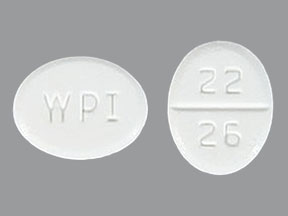
My prescription
Edit
0.2MG, Desmopressin (90 Tablets)
Select pharmacy

CVS
$39.96
COUPON PRICE
Walmart
$47.84
COUPON PRICE
Albertsons
$48.04
COUPON PRICE
Walgreens
$51.66
COUPON PRICEDesmopressin savings card
Show this card to your pharmacist
CVS
$39.96
BIN
ID
PCN
GRP
011867
LH931736A7
HT
LABH001
Powered by
Price history for Nocdurna (brand) & Desmopressin (generic)
90 Tablets, 0.2MG
Average retail price for Nocdurna
Average retail price for Desmopressin
Average SaveHealth price for Desmopressin
Our price history data is based on aggregated prescription data collected from participating pharmacies in America. Our prescription data updates daily to reflect the latest price changes. If you notice a missing data point, it means there wasn't sufficient data available to generate a monetary value for that date.
We analyzed Desmopressin prices for (0.2MG, 90 Tablets) over the last 12 months. The average retail price was $116.38, while the average price using the SaveHealth discount card was $75.51. That's a savings of approximately 35.12% when using our Desmopressin coupon.
Compared to the generic version, Nocdurna had an average price of $589.32 over the same time period. With the SaveHealth savings card, Desmopressin is 87.19% cheaper on average than Nocdurna.
*Retail prices are based on pharmacy claims data, and may not be accurate when we don't have enough claims.
Desmopressin dosage forms
Dosage Quantity Price from Per unit 0.1MG 1 Tablet $2.85 $2.85 0.1MG 30 Tablets $12.89 $0.43 0.1MG 50 Tablets $19.81 $0.40 0.1MG 60 Tablets $23.27 $0.39 0.1MG 90 Tablets $36.00 $0.40 0.1MG 100 Tablets $37.08 $0.37 0.2MG 90 Tablets $42.00 $0.47 0.2MG 1 Tablet $2.93 $2.93 0.2MG 30 Tablets $15.45 $0.52 0.2MG 50 Tablets $24.08 $0.48
| Dosage | Quantity | Price from | Per unit |
|---|---|---|---|
| 0.1MG | 1 Tablet | $2.85 | $2.85 |
| 0.1MG | 30 Tablets | $12.89 | $0.43 |
| 0.1MG | 50 Tablets | $19.81 | $0.40 |
| 0.1MG | 60 Tablets | $23.27 | $0.39 |
| 0.1MG | 90 Tablets | $36.00 | $0.40 |
| 0.1MG | 100 Tablets | $37.08 | $0.37 |
| 0.2MG | 90 Tablets | $42.00 | $0.47 |
| 0.2MG | 1 Tablet | $2.93 | $2.93 |
| 0.2MG | 30 Tablets | $15.45 | $0.52 |
| 0.2MG | 50 Tablets | $24.08 | $0.48 |
| 0.2MG | 60 Tablets | $28.39 | $0.47 |
| 0.2MG | 100 Tablets | $43.74 | $0.44 |
